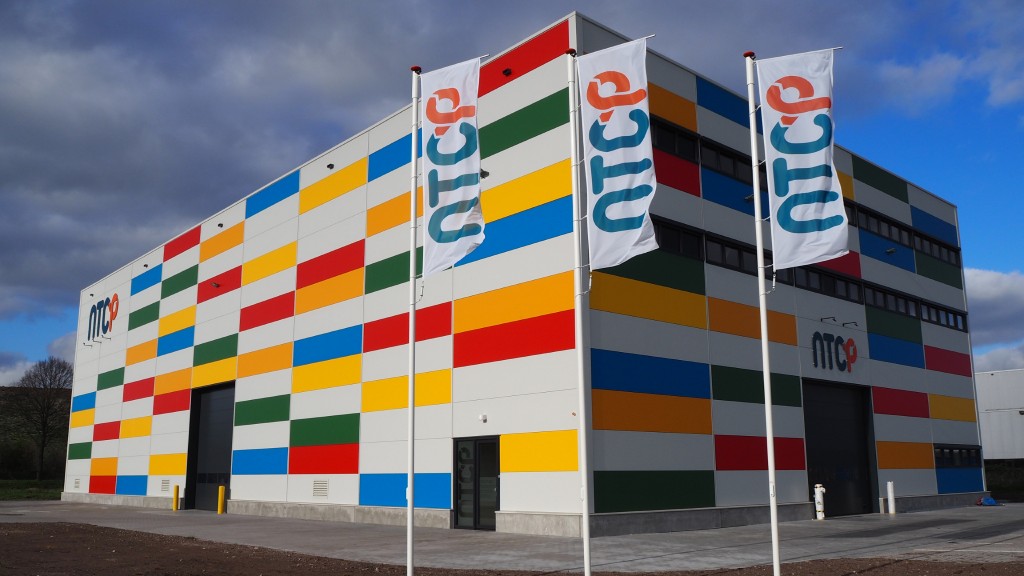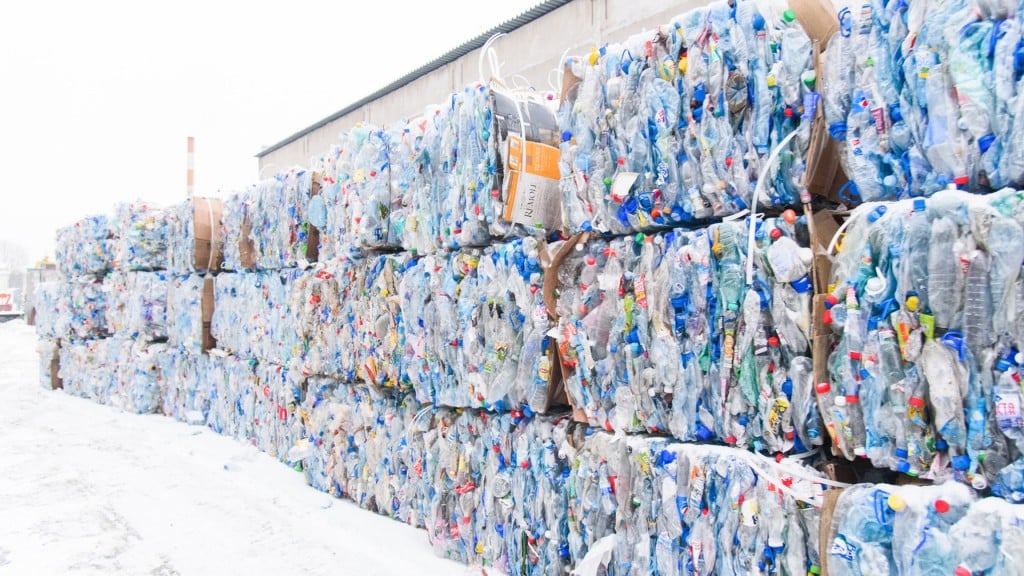NTCP to install Lindner Washtech's modular washing system to increase plastic circularity testing abilities

An independent testing and research centre with facilities on an industrial scale in Europe, the NTCP (National Test centre for Circular Plastics), has set out to examine the behaviour of different plastics during sorting and washing. The goal is to optimize processes and more efficiently use energy, in order to promote plastics recycling in line with the circular economy model. Dutch and foreign clients are already showing great interest in the testing options.
"With its modular design, Lindner Washtech's plastic washing system, to be installed in mid-2022, will make a significant contribution to our research and the optimization of various plastic streams," says Martine Brandsma, director of the NTCP.
Tucked away in Friesland, a northern Dutch province, lies the 50,000 population community of Heerenveen. Since 2018, it has also been home to the NTCP. It is an independent testing and research centre that can analyze heterogeneous plastic waste streams down to the smallest part.
The NTCP's concept is actually quite simple: the more plastic that enters the correct sorting stream and then takes the correct route to the relevant mechanical and chemical recyclers, the higher the percentage of plastics that remain in the loop. Though this may sound simple in theory, the reality is more complex. Because of constant developments being made, the system too is in a state of constant change. In order to examine individual or larger steps in the process, the NTCP has a 25 by 20 metre long, and 9 metre high, industrial sorting system. This simulates the entire sorting process (up to 2 t/h). The modular design allows for settings to be adapted to different testing requirements, which can then be analyzed in detail. In this way, one can also test how different sorting techniques interact.
Bringing a new washing system to the NTCP
The NTCP's current sorting system takes up half of the thousand square metres of available production space. The other half is reserved for a new washing system, which will be commissioned from and installed by the plastic recycling specialist Lindner Washtech in August 2022. Lindner Washtech's modular system allows for each individual step of the washing process to be examined and quantified in detail.
"Soon we will be able to simulate and optimize the entire washing process for all materials," says Freek Van Rhijn, technical director of the NTCP. "From shredding, dry washing, cold and hot washing, density separation, [and] mechanical and thermal drying, all the way to separating with a flake sorter. We can also focus on the detergents required and the environmental impact of using more or less water. How does washing by five or ten degrees less affect energy consumption? What ends up in the wastewater and how much does it cost to dispose of? With the new washing system, we can examine every single step, from sorting all the way to the final clean plastic flake."
For several months, Rhijn has worked closely with Lindner Washtech's engineers to develop the new plastic washing system. Harald Hoffmann, the firm's managing director, is happy to actively help shape this project. He is convinced that the testing system as a whole will have a huge impact on the recycling industry.
"The modular system will soon make it possible for different types of plastic to undergo different washing tests," says Hoffmann. "This is made more feasible as the modules can be independently integrated into the process. In addition, the washing modules can be separately adapted to the requirements of each kind of plastic and its degree of contamination. This flexibility creates multiple opportunities for process optimization at every step of the way while ensuring high-quality recycled material. This kind of research and testing not only actively contributes to recycling profitability, it also increases the rate of recycling and environmental protection."
In addition to supplying the complex washing system, Lindner Washtech is also including a universal plastic shredder from its Antares series, as well as a wet granulator. The washing process can be adapted through its different components to suit any kind of input material and its varying degrees of contamination. To this end, a dry cleaner, pre-washer, friction washer, or various hot-wash components are also available. The client can choose from various options when it comes to material separation and drying – which can be chosen to develop and design the optimal process for the material at hand. The NTCP system will be equipped with a mechanical dryer, a step dryer, and a thermal dryer for plastic film.
Since the NTCP is an independent, non-profit organization, it reinvests all its profits and equally addresses different organizations and stakeholders within the circular plastic recycling chain. Many national and international companies have already expressed an interest in collaborations and partnerships.
Orders have come in from a variety of large and small firms, including sorters, recyclers, brand owners, retailers, packers, and other stakeholders in the plastic recycling industry. These, alongside international brands, have all approached the NTCP with research and testing requests.
Lindner Washtech also intends to use this facility to further develop its washing components and to test prototypes.
"In future, we want to make the most of the NTCP's testing possibilities for our own research and development. We will also ensure that our latest innovations are made available to the NTCP for test runs. Ultimately, the entire plastics industry benefits from testing facilities of this magnitude," says Georg Krenn, technical director at Lindner Washtech.



